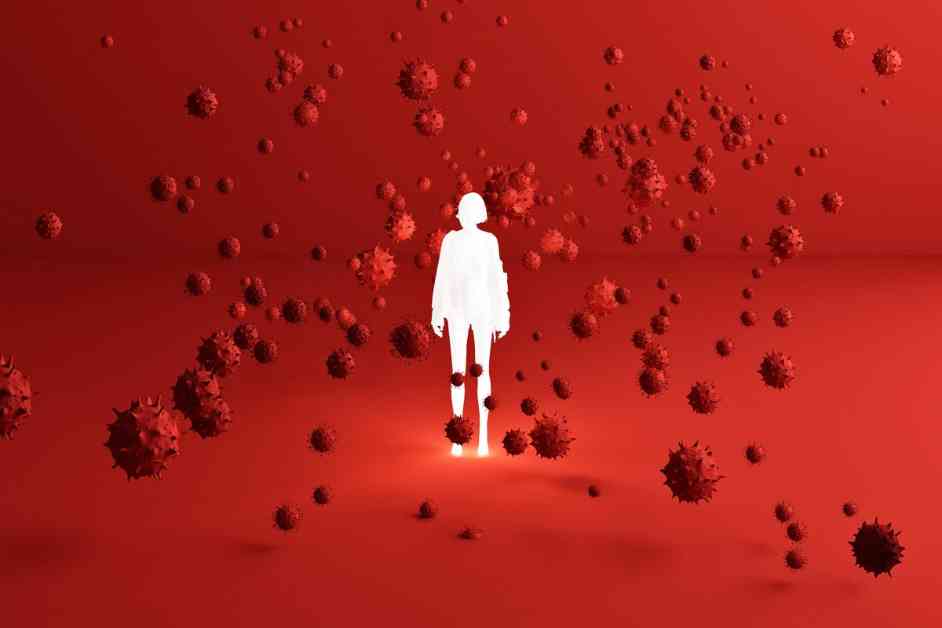Not everyone who is exposed to the virus that causes COVID-19 actually gets sick. A recent study published in Nature shed some light on why this might be the case. In the study, researchers attempted to infect 16 unvaccinated volunteers with a low dose of the original strain of the virus. They found that some participants were able to quickly fight off the virus thanks to a fast-acting innate immune response in their nose.
The participants who developed a full-blown COVID infection experienced mild symptoms such as a sore throat and nasal congestion. On the other hand, some individuals tested positive for the virus but had very mild or no symptoms at all. Interestingly, seven participants did not get infected at all, never testing positive for the virus.
Those who were able to fight off the virus produced high levels of signaling proteins called interferons in their nose very early on after infection. Interferons help cells defend against foreign invaders by halting major life functions that viruses need to replicate. In contrast, those who developed a full-blown infection showed interferons in their blood much later, giving the virus more time to multiply.
While genetics may play a role in how some people are able to quickly rally their immune system to fight off infection, researchers are still trying to understand why some are more resistant to the virus than others. Some participants in the study had high levels of activity in a gene called HLA-DQA2, which produces a protein that presents immune cells with snippets of foreign invaders.
Although the study highlights the importance of interferons in fighting off COVID-19, it’s important to note that vaccines remain the most effective way to prevent infection and long-term illness. While some people may interpret the power of the innate immune response as a reason to dismiss vaccines, it’s crucial to remember that the response varies among individuals and cannot provide complete protection from the virus.
In conclusion, the study offers valuable insights into how the body’s immune system responds to COVID-19 infection. Understanding why some people are more resistant to the virus than others could help in developing more effective treatments and vaccines in the future. Vaccination remains the best defense against COVID-19 and its potential long-term effects.






